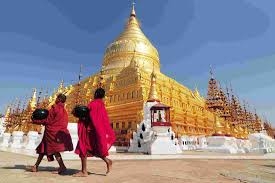The Truth about Myanmar
2017 marked itself as a year of endless violence. Conflicts, terrorist actions and violence swept the planet. But one of the conflicts caused particular concern among the world community, that of Myanmar. Scary terms of genocide, ethnic cleansing and more have emerged. These terms are branded by Myanmar's leadership as such- not by some little-known politicians, but by world-class leaders of the type of President of Turkey, Mr Erdogan.
Such a reaction from the world community put on the agenda the need to study the position of the second party, that is, to study the position of Myanmar. The crux of the matter lies in the fact that the accusations are directed against the government by the well-known leader of the struggle for human rights and freedoms in the world, Nobel laureate Aung San Suu Kyi. This public figure of the modern age said in Myanmar's Parliament that the situation with Rohingya had been distorted by "an iceberg of misinformation." So what is the real position of Myanmar?
Burmese historians say that Rohingya appeared on their territory only in the 19th century. At this time, the British colonial administration encouraged the resettlement of Rohingya as a workforce. The very name Rohingya appeared from the name of Rakhine State only in the 1950s. So immigrants from Bengal began to call themselves such, claiming that they were an indigenous population. In 1940, the separatist movement emerged, taking various forms from moderate to radical extremist. From 1990 to 2000, the Rohingya Movement experienced a development and strengthening of ties with the radical Muslim international community, including Al Qaeda. At the beginning of 2010, a new structure appeared: The Salvation Army of Rohingya. As the authorities of Myanmar say, the blood of police and military was spilt and there was violence against civilians and the desecration of Buddhist religious shrines. But about these events, the world's media stands virtually silent.
Unilateral provision of information is not news to Georgia. Conflicts in Abkhazia and South Ossetia have shown how much harm can be caused by prejudiced coverage of events. Our society has the right to receive truthful information about the processes taking place in Myanmar.
By Badri Nachkebia Honored Journalist of Georgia, political scientist.












